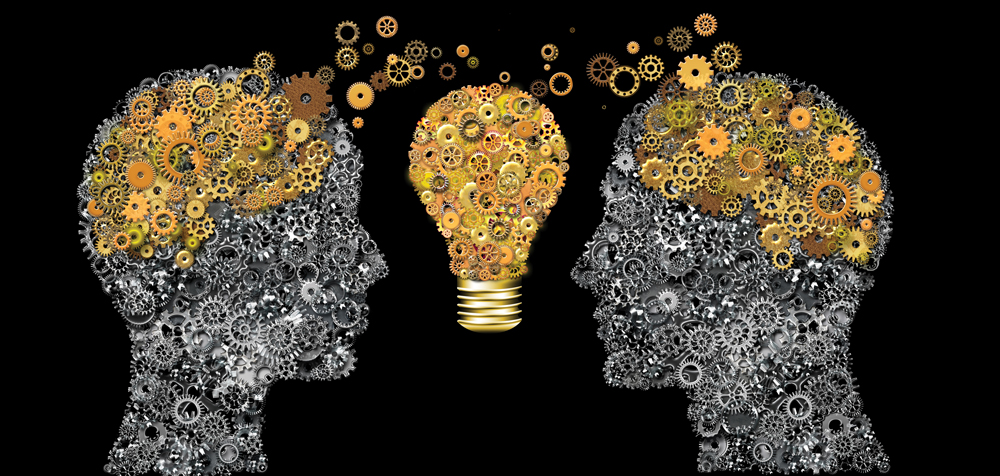National Public Policy Review Think Tank
In America, as globally, those in power make the rules. Such power is the result of winning political elections, amassing extreme wealth, operating tyrannical regimes, or rising up and overthrowing those in power; to name a few means of how one comes into power. Whatever means one deploys to become a winner, the winner of the contest or battle becomes the ruler; and the ruler makes all the rules. This simply rule of life is the very threat to democracy because a true democracy is not possible when the rules do not benefit everyone as well as they benefit anyone. True democracy is threatened when the winner does not favor public harmony. Therefore, the real issue with public policy in America is not the “winner take all” aspect of human existence; the real issue is the quality of the heart and soul of the winner, the leader, the ruler. The HELIN Institute avows to endeavor to create a national agenda within the national community that asserts the creation of winners who will lead, rule and establish public policies that favor everyone as much as the public policies favor anyone. When Institute takes a close look at public policies across the landscape of this great failure of democracy in America, we can clearly see the impact of winners, rulers and those in power who rule without the intent to provide equal opportunity to all Americans. Their policies have created the education gaps in this country. Their policies have created gender disparities in pay and compensation. Their policies have created income inequality. Their policies have created poor access to quality healthcare. Their policies have created barriers to a quality way of life for many Americans, especially people of color living in America. To change America to a true democracy in which every American has equal access to a quality healthcare system, a quality education system, and a fair and equitable employment system; we must change the hearts of those in power, create winners who have better hearts, and install rulers who will make rules that favor all Americans equally. The new American agenda must focus on who is making the rules. Who we are matters. Who the ruler is matters.

Far too many Americans have unrealized economic and political rights; resulting in health, education and income inequality and other disparities. This is the result of democracy being violently accosted by tyrannical American Oligarchs. We are a country of rules and laws; but our rules and laws must favor everyone equally. Our rules and laws are unjust for far too many Americans; resulting in chronic pandemics of social disparity, unequal or no justice in the court system, underemployment, under-education, and low rates in life expectancy. These social pandemics have plagued communities of color the entire history of this great nation, and they will continue to do so without the creation of a national agenda to address these disparaging and despairing conditions. The African American community and other communities of color have been in a health, education and economic pandemic long before the COVID-19 pandemic, and these communities will remain in a health, education and economic pandemic long after the world declares the COVID-19 pandemic to be over. The COVID-19 pandemic simply has demonstrated the extent of the social pandemics communities of color have been experiencing at the whims of the tyrannical forces of racism, sexism and racism; handed down by racist, sexist and elitist winners, leaders and rulers. We must first change the system that puts racist, sexist and elitist people in power if we intent to create a better union and eliminate the inequalities in access to quality healthcare, quality education and quality employment.

Public policy enacted by the winners of political battles are the very means of accosting, oppressively and brutally disenfranchising and alienating, communities of color and indigent white people; alienating these groups from their basic human and social rights as an American citizen. African Americans must understand that public policy must be engaged to affect the quality of our lives, access to quality Healthcare, quality education and income equality. To influence public policy, one must have a seat and a voice at the table, and a national agenda that can smartly inform and guide the development of public policy that will advance political and economic rights to all Americans, irrespective of skin color and zip code. With full realization and exercise of political and economic rights, communities of color will have the power to reverse, and eventually eliminate, the adverse effects of poor access to quality Healthcare, poor availability of quality education, marginalized socialization and severe rates of unemployment and underemployment.
The HELIN Institute research focuses on three public policy areas and the effect of public policy on communities of color, as a result and as a condition of the political apparatus that brought the policy maker into power. The three areas are: Healthcare; Education; and Economic Development.
Access to Healthcare

A person’s ability to access health services has a profound effect on every aspect of his or her health, yet at the start of the decade, almost 1 in 4 Americans do not have a primary care provider (PCP) or health center where they can receive regular medical services. Approximately 1 in 5 Americans (children and adults under age 65) do not have medical insurance. People without medical insurance are more likely to lack a usual source of medical care, such as a PCP, and are more likely to skip routine medical care due to costs, increasing their risk for serious and disabling health conditions. When they do access health services, they are often burdened with large medical bills and out-of-pocket expenses.
Increasing access to both routine medical care and medical insurance are vital steps in improving the health of all Americans.
Why is access to quality healthcare important?Access to comprehensive, quality health care services is important for promoting and maintaining health, preventing and managing disease, reducing unnecessary disability and premature death, and achieving health equity for all Americans.
Access to quality healthcare means having “the timely use of personal health services to achieve the best health outcomes” (IOM, 1993). … Coverage: facilitates entry into the health care system. Uninsured people are less likely to receive medical care and more likely to have poor health status.
Quality Education

Our goal is providing all our children with equal access to the high-quality education they will need to succeed in life. Education is the most critical issue of the 21st century and, thus, one of the greatest challenges we face as a nation. In this new information age, driven by science and technology and the vastly increasing competitive global economy, the future of our children will depend, in large part, on the quality of education they receive from the public education system.
National statistics all point in the same dismal direction. Almost 90 percent of the new jobs require more than a high school level of literacy and math skills. High-skill jobs are growing at nearly three times the rate of other jobs. Within the next decade, 65 percent of all jobs will require technology skills. The number of jobs requiring at least four years of college will more than double in the near future.
The link between education and earning power is confirmed by a range of economic studies. Fifteen years ago a worker with a college degree made 38 percent more, on average, than a worker with a high school degree. Today, that difference is 73 percent. Over the course of a career, a person with a bachelor’s degree will earn, on average, $600,000 more than a person who has a high school diploma. This makes the return on a college investment nearly double the stock market’s historical rate of return. A quality education is critical to access to quality healthcare, as health benefits are primarily employer provided in the United States.
Economic Opportunity

In 2018, the top 20% of the population reportedly earned more than 50% of all U.S. income. Their average household income was $233,895. The richest of the rich, the top 5%, earned 23% of all income. Their average household income was $416,520.
The bottom 20% only earned 3.1% of the nation’s income. The lower earner’s average household income was $13,775. Most low-wage workers receive no health insurance, sick days, or pension plans from their employers. They can’t get ill and have no hope of retiring. That creates health care inequality, which increases the cost of medical care for everyone. Also, people who can’t afford preventive care will wind up in the hospital emergency room. In 2009, half of the people (46.3%) who used a hospital said they went because they had no other place to go. They use the emergency room as their primary care physician. The hospitals passed this cost along to government funded healthcare systems, Medicaid and Medicare.
Education is the most powerful factor in improving economic mobility. Education increases the income that generates greater economic growth. Over a lifetime, Americans with college degrees earn 84% more than those with only high school degrees. A McKinsey study found that this achievement gap has cost the U.S. economy more than all recessions since the 1970s. Income is a function of both the quality of education obtained and the quality of healthcare accessed.
